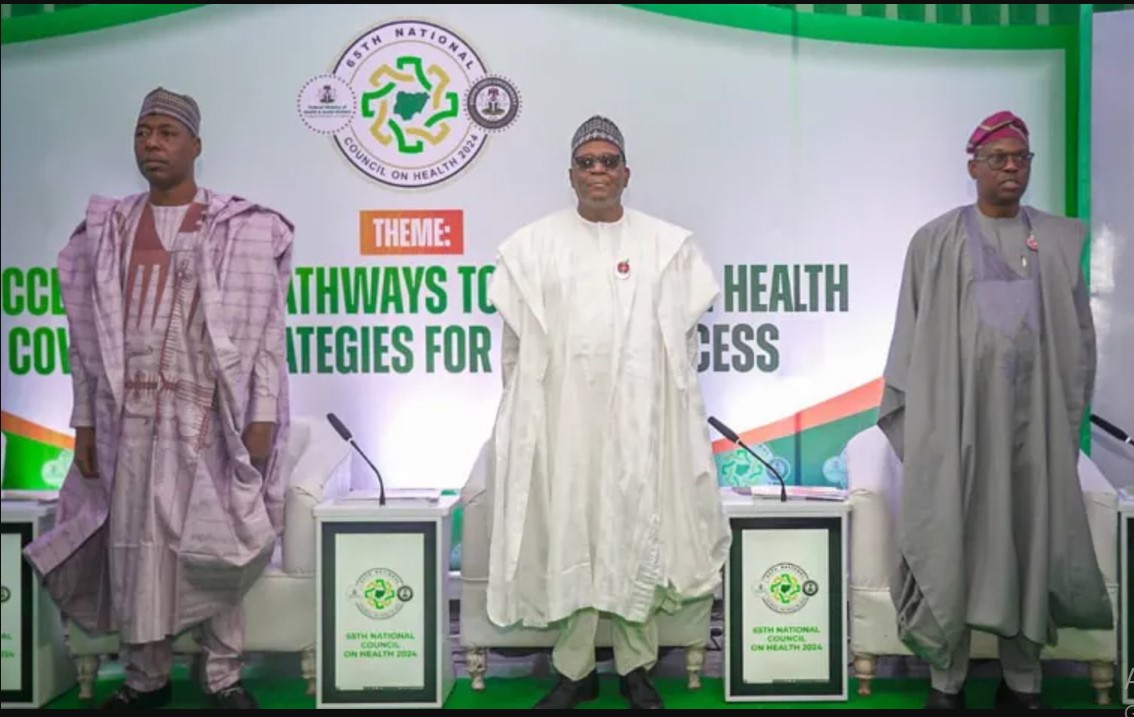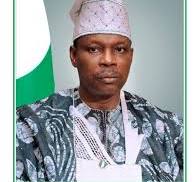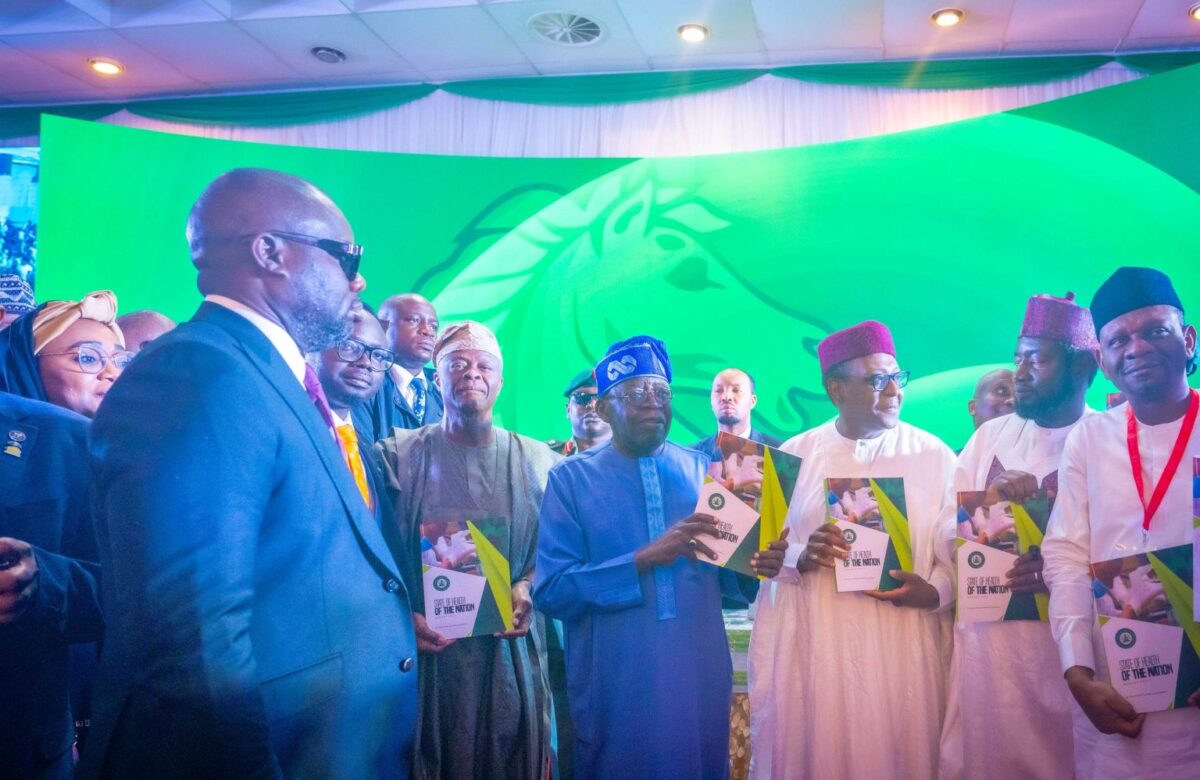
FG Highlights Pathway to UHC at the National Council on Health Meeting
- Health and WellbeingHealth Sector
- No Comment
- 258

The Federal Government has reiterated its commitment to achieving Universal Health Coverage (UHC) by 2030, describing it as a cornerstone of President Bola Ahmed Tinubu’s Renewed Hope Agenda.
The pledge was reaffirmed by the Minister of State for Health and Social Welfare, Dr. Iziaq Adekunle Salako, at the 65th National Council on Health meeting held at the Mohammed Indimi Centre for Distance Learning, University of Maiduguri.
Themed “Accelerating Pathways to Universal Health Coverage: Strategies for 2030 Success”, the event convened policymakers, state commissioners, and key stakeholders to assess progress and align strategies for transforming Nigeria’s health sector.

Dr. Salako outlined the Federal Government’s strategy for achieving UHC, emphasizing qualitative, accessible, and affordable healthcare for all Nigerians. Key initiatives include:
Strengthening Primary Healthcare (PHC): Establishing PHC as the foundation for equitable healthcare delivery across the country.
Infrastructure Development: Upgrading tertiary healthcare facilities, including diagnostic services for cancer care and neonatal units.
Healthcare Workforce Development: Training and retraining healthcare workers, with a special focus on PHC-level personnel.
Digital Health Innovations: Implementing Electronic Health Records (EHR) and Health Information Exchanges (HIE) under the Nigeria Digital in Health Initiative (NDHi).
Local Pharmaceutical Development: Advancing the Special Presidential Initiative on Unlocking Health Value Chain (PVAC) to boost pharmaceutical manufacturing and standardize herbal medicine use.
Cross-Sector Collaboration: Partnering with ministries to address broader health determinants such as sanitation, environmental health, and nutrition.
Dr. Salako acknowledged several challenges, including recurrent strikes in the health sector, which he described as a significant obstacle to achieving UHC. He appealed to the Medical and Dental Consultants’ Association of Nigeria (MDCAN) to end their ongoing seven-day warning strike, assuring them that discussions with the Federal Ministry of Education were progressing to address their concerns.
The Minister called on state governments to emulate the Federal Government’s commitment to health sector reforms. He specifically urged governors to implement the Health Renewal Compact signed in December 2023 and prioritize health initiatives in their respective states.
Dr. Salako commended Borno State Governor, Prof. Babagana Zulum, for hosting the event and applauded the state’s resilience in the face of recent challenges, including flooding. He expressed solidarity with flood victims and assured them of federal support for recovery efforts.
In his closing remarks, Dr. Salako emphasized the importance of sustained dialogue and collaboration among stakeholders to improve Nigeria’s health indices. He urged all parties to remain committed to delivering equitable and high-quality healthcare to Nigerians.




